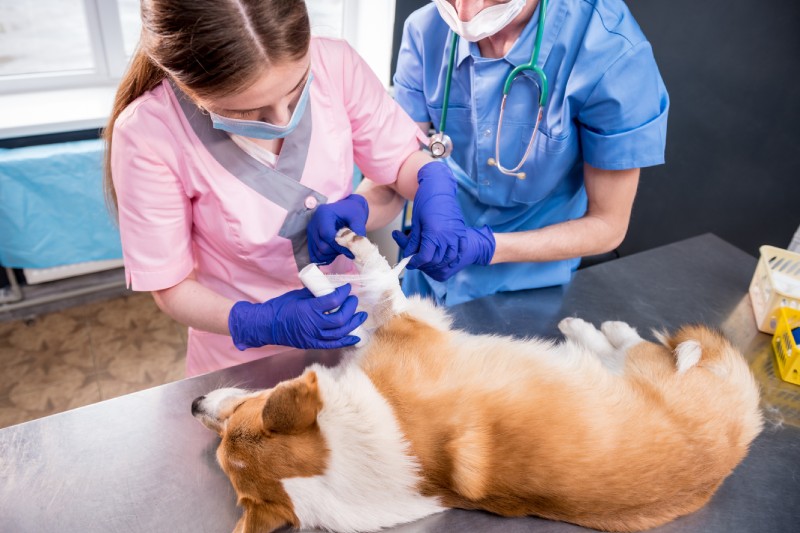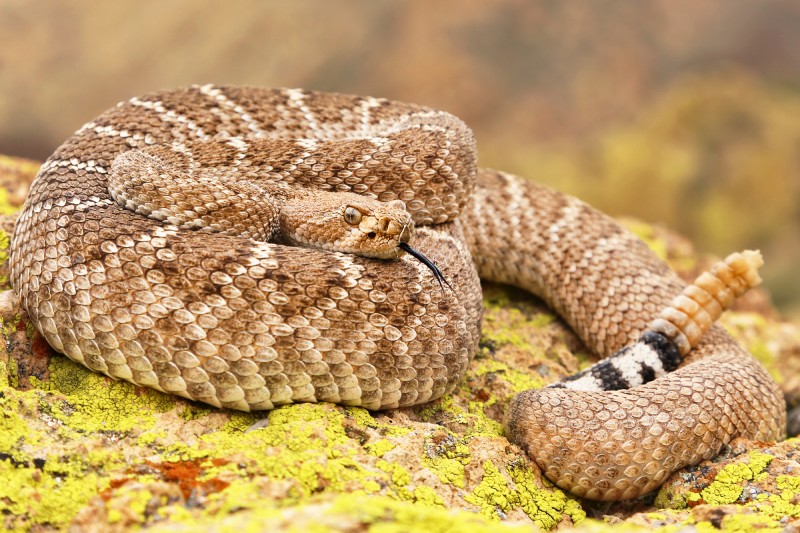05/10/2024
As per stats, Texas leads the list of “Venomous snakebites per year,” with 1,408 snakebites occurring every year on average. When the stakes are high, it’s important to take precautions against snakebites and protect both yourself and your furry friends. And for your furry friends, there’s an option of pet insurance coverage.
But do pet insurance policies in McAllen, Texas, cover snake bites? The good news is yes. Find out more in this article.

Pet Insurance Coverage: What’s Covered and What’s Not
A pet insurance policy is a form of health insurance policy designed for pets to pay off a portion of their medical bills when the need arises. Just like policies for humans, pet insurance varies based on its coverage.
Usually, you’ll find two different types of pets insurance policies, which are:
- Accident & illness pet insurance plans
- Accident-only pet insurance plans
As the name suggests, accident & illness pet insurance policies are designed to cover accidents and illnesses, while accident-only plans cover only what’s deemed as “accidents.” Then, there are add-ons in the form of routine wellness plans.
Here are some common accident events the policies provide coverage for:
- Animal bites
- Car accidents
- Cuts and lacerations
- Eye injuries
- Fractured teeth
- Poisoning
- Broken bone
- Swallowed objects
Most pet insurance policies provide coverage for snake bites under accident, more specifically, “animal bites.”
Within the chosen coverage level, pet insurance can typically help you manage costs for:
- Surgery: This includes emergency surgery for accidents and necessary surgeries for illnesses.
- Hospitalization: Overnight stays for observation, treatment, and recovery are often covered.
- Medications: Prescribed medications used in treatment are usually reimbursed.
- Diagnostics: X-rays, blood tests, and other diagnostic tools can be expensive; pet insurance can help offset these costs.
Your furry friend will need anti-venom immediately after being bitten by a venomous snake. The good news is the pet insurance policies pay for the anti-venom and related medications.
However, just like with humans, there are common exclusions to be aware of, which are:
- Pre-existing conditions: Any condition your pet had symptoms of or received treatment for before the policy began is typically excluded.
- Preventative care (unless as a wellness add-on): Routine checkups, vaccinations, spaying/neutering, and flea/tick prevention are usually not covered in accident-only or accident & illness plans.
- Elective procedures: Procedures not deemed medically necessary, like tail docking or ear cropping, are not covered.
- Cosmetic procedures: Treatments purely for aesthetics are excluded.
- Behavioral issues: Costs associated with training or treating behavioral issues are not covered.
Therefore, the coverage will most likely be determined on a pet-by-pet basis.

Pet Insurance Policy Coverage Cost
If you’ve taken an insurance policy before, you’d know how policies are priced. The majority of the factors are applicable to pets as well.
The average cost of a pet insurance policy is around $50 per month, which can go as high as $80 per month.
Usually, companies weigh in on the risks and rewards when determining coverage and cost. Less vulnerable and risky pets will attract lower rates than their riskier counterparts.
Here are the factors taken into consideration when determining pet insurance policy coverage cost:
- Pet species: Dogs are generally more expensive to insure than cats because of their hyperactive and risk-taking nature.
- Breed: Certain breeds with higher genetic predispositions to health problems may have higher premiums.
- Age: Younger pets typically have lower premiums, which increase as they age. This is in line with humans.
- Location: Vet costs can vary by location, so your geographic area might influence the premium.
- Coverage level: Accident-only plans are cheaper than accident & illness plans, and adding a wellness plan will further increase the cost.
- Deductible: This is the amount you pay upfront before your insurance kicks in. A higher deductible generally means a lower monthly premium.
- Reimbursement level: This is the percentage of covered costs your insurance company reimburses you for (usually between 50% and 80%). A higher reimbursement level typically results in a higher premium.
Thus, you need to consider all of the factors when deciding on the cost. Please note that snake bites in the US are highly regional, with the Southern part of the country being more vulnerable. So, areas where venomous snakes are more likely to be found will demand higher coverage costs.
In 2024, snake sightings were on the rise in North Texas. Thus, it’s not uncommon for insurance providers to demand higher coverage in this region.
In the southern part, like in the McAllen and RGV areas, the risk is lower but not nil. They inhabit both venomous and non-venomous snakes in Southern Texas.
The good news is that common snakes found in the region, like Rough Earth Snakes, Checkered Garter Snakes, and Diamond Waterback, are harmless and non-poisonous. However, you need to be wary of species like Texas Coral Snake, Western Diamondback Rattlesnake, and Broadbanded Copperhead, which are quite venomous.

How to Handle Snakebites for Pets?
While pet insurance can help manage the financial burden of a snakebite, the first priority is always your pet’s well-being. Therefore, you must know what to do after a snake bites your furry pal.
Here are the immediate steps you should take:
- Stay calm
Most people and pets get nervous when such an event occurs. A frantic pet can worsen the situation. Take a deep breath and assess the situation.
- Identify the snake (if possible)
If you can safely do so, from a distance, try to snap a picture of the snake for identification. This will help the vet determine the type of venom and provide the most effective treatment. However, prioritizing your safety is crucial. Don’t attempt to capture or handle the snake.
If you decide to go after the snake and kill or decapitate it, ensure to dispose of its head safely because snakes have reflexes to bite even hours after being decapitated. And they can expel venom, often in greater amounts.
- Move your pet away
Carefully remove your pet from the area to prevent further bites. If possible, carry them to minimize movement of the bitten limb.
- Restrain the bitten limb (if possible)
If it’s safe to do so, gently immobilize the bitten limb with a splint or bandage made from clothing. This helps reduce movement and swelling.
It’s usually recommended not to apply anything or feed anything to your pet unless advised by the vet. But if you have a pet first-aid kit, you can use saline solution to flush the wound gently. It’s best to contact the vet immediately and rush to their clinic.

How to File a Claim for Pet Insurance in McAllen, RGV?
Once you’re at the clinic, the vet will go about their duties and do the needful. In most cases, the pets recover and live another day after receiving anti-venom treatment.
During this phase, your task would be to file a claim for insurance in McAllen. It starts with double-checking the insurance policy and contacting your insurance provider. Let them know about your pet’s situation and your intent to file a claim. Most companies have a dedicated claims hotline or online portal for this purpose. So you can file digitally right from the clinic.
You’d have to file an online form and provide itemized vet bills. The cornerstone of your claim is a detailed bill from your veterinarian. Ensure it includes all charges, medications, procedures, and taxes.
Depending on the case, the amount is reimbursed to the vet clinic within a few days. If your claim is denied, you have the right to appeal the decision. Review your policy’s appeal process and submit any additional documentation that strengthens your case.
And, if you are looking for a reliable pet insurance provider in McAllen, SafeGuard Insurance Agency is dedicated to provide utmost insurance protection to your pets. Contact us today to learn more.






